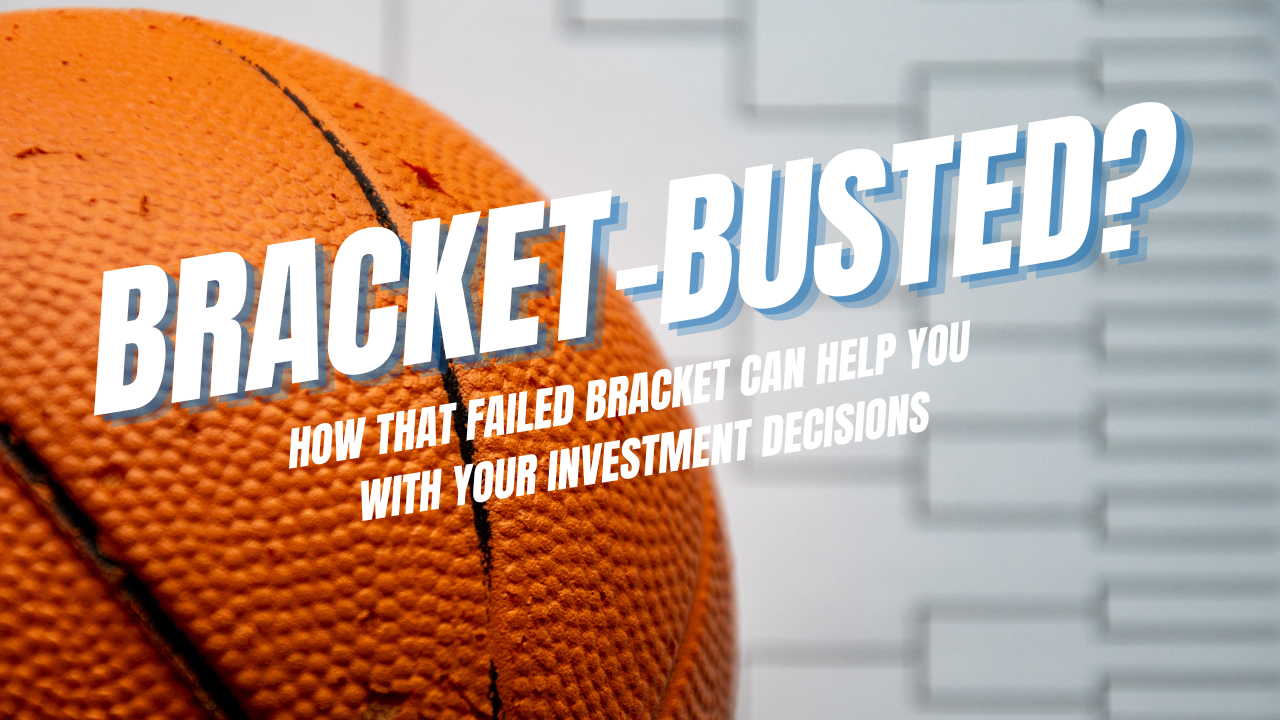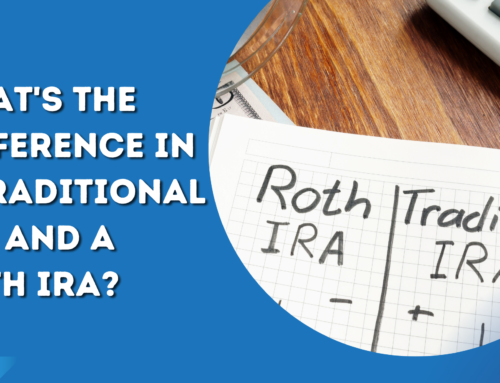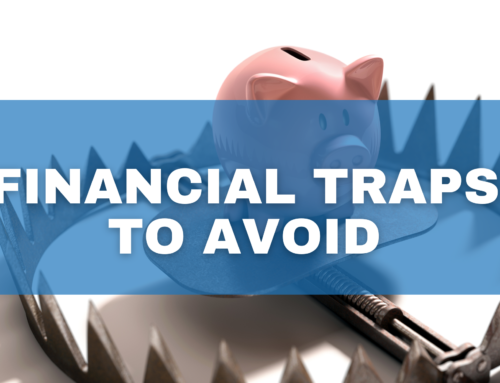It was a rough year for bracket-picking March Madness fans this year (there was not a single, un-blemished bracket among all the major sites), but the agony will soon be over with the Final Four crowing a champion Monday night and putting those busted-brackets and failed picks to bed for another year.
But how do you keep from making financial picks that might bust your financial picture? Filling out a bracket is undoubtedly a fun way to participate in the tournament, many people end up with a bad bracket due to factors such as biases, lack of knowledge, or overconfidence. Similarly, making bad financial decisions can lead to negative consequences. Let’s explore how picking a bad March Madness bracket is like making bad financial decisions.
Making Investment Decisions Based on Biases
One of the main reasons brackets are often busted is people are affected by biases. Some people have a favorite team or a particular player they want to win, so they choose that team to advance further than they realistically should (Raises my maroon-colored giant finger hand slowly in anger and shame). Similarly, in finance, people may have biases towards certain stocks or investments, which can lead them to make poor investment decisions.
For example, an investor may have a bias towards a particular industry or company because they have an emotional attachment to it. This can lead them to overlook potential risks or flaws in the investment, and they may end up losing money as a result. You might love the national beverage shop that you choose to frequent daily, but that doesn’t always mean it is (or isn’t) a good solid investment for your portfolio.
Lack of Knowledge and Overconfidence
Another reason people may end up with a bad bracket is a lack of knowledge. They may not have followed the teams closely throughout the season and don’t have a good understanding of their strengths and weaknesses. Additionally, some people may overestimate their knowledge and abilities, leading them to make poor predictions.
Similarly, in finance, lack of knowledge and overconfidence can lead to poor investment decisions. An investor who is not well-informed about a particular investment may end up making a poor decision based on incomplete information. Additionally, an overconfident investor may take on too much risk or make decisions based on emotions rather than logic.
The Consequences of Bad Investment Decisions
In both March Madness and finance, making bad decisions can have consequences. In March Madness, a bad bracket may lead to disappointment or ridicule from friends or coworkers. However, in the investment world, the consequences of bad decisions can be much more severe. Poor investment decisions can result in significant financial losses, missed opportunities for growth, and setbacks towards achieving financial goals.
Related: Common 401k Mistake Made by Employees
Strategies for Making Better Decisions
To avoid making bad decisions, it’s important to have a solid strategy in place. In March Madness, this means doing research and analysis to make informed predictions. In finance, it means having a solid understanding of investment options and doing research to make informed decisions.
Additionally, it’s important to stay level-headed and not let emotions or biases cloud judgment. Taking a rational and objective approach to decision-making can help prevent bad decisions and reduce the risk of negative consequences.
So, with the final nail going into the coffin on your bracket on Monday, it’s a good time to reflect on how you made your picks and write a nice note to yourself to read in 11 months. Much like looking over your bracket next week, reflecting on your financial decisions (good and bad) can be helpful when determining how to tackle others down the road.
Can't find what you're looking for on our website? Have a question regarding your financial picture? Want to leave us some feedback? We would love to hear from you. You can email me at Brian@TheAeroAdvisor.com or fill out the form below.
By submitting this form, you are consenting to receive marketing emails from: . You can revoke your consent to receive emails at any time by using the SafeUnsubscribe® link, found at the bottom of every email. Emails are serviced by Constant Contact
The opinions voiced in this material are for general information only and are not intended to provide specific advice or recommendations for any individual, nor intended as tax advice. We suggest that you discuss your specific situation with a qualified tax or legal advisor.
LPL Tracking #424980-1






